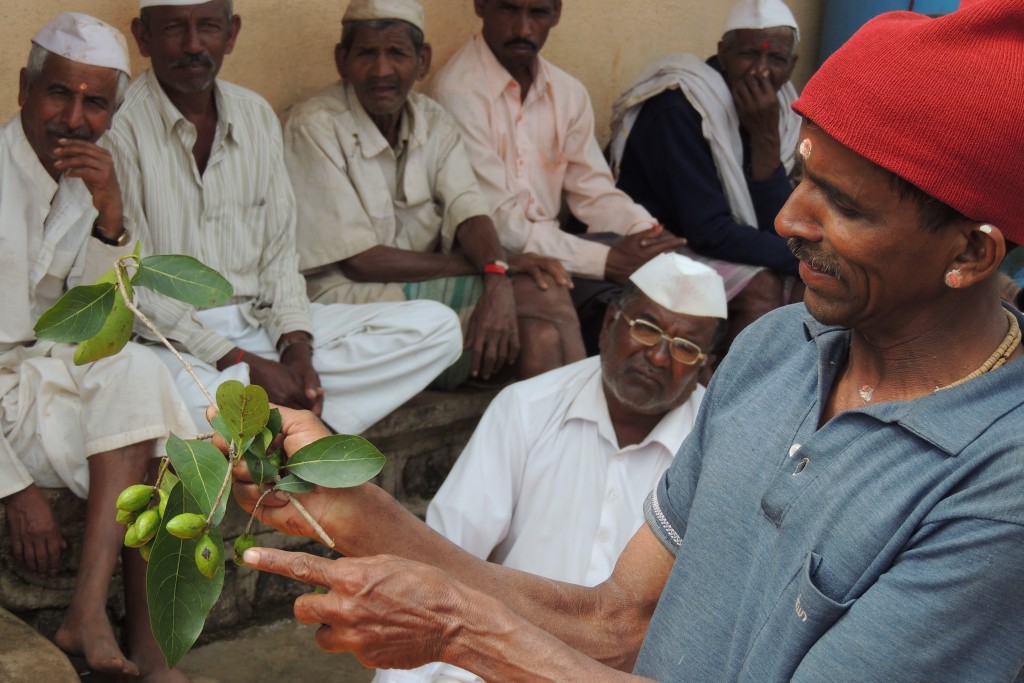Commercial supply chain involving two local communities in North Western Ghats receives all-important FairWild Certificate.
FairWild certification ensures that buyers – from ingredient traders up to consumers – know they are dealing with legally and sustainably sourced products. In being fair traded, additional value is added and the benefits are felt by all those involved, right down to the local communities harvesting the wild plants.
The North Western Ghats project involves the collection and processing of the fruit of two species (Terminalia bellirica and T. chebula) by Mahadev Koli tribal people living in the Bhimashankar Wildlife Sanctuary and, 400 km further south, by marginal farmers in the Sangameshwar block of Ratnagiri District. These species comprise two of the three ingredients of Triphala, an important Ayurvedic (traditional Indian medicine) preparation.
Prior to the programme, which involves conservationists from the University’s Durrell Institute of Conservation and Ecology (DICE), both groups were lacking sustainable harvesting skills and market access, hence limiting their range of economic opportunities.
However, by working with a local Indian NGO (AERF – the Applied Environmental Research Foundation ), Pukka Herbs Ltd and TRAFFIC International , DICE has helped increase both the quantity and commercial value of the crops and, by significantly increasing income to those at the front end of the supply chain, has directly incentivise villagers to protect the associated biodiversity. A company, Nature Connect, has also been set up by AERF specifically to co-ordinate the trade and business relations, promote the products, and develop the business plans.
The story of this first FairWild certification success in the whole of India provides a useful example of how such a market tool can act as a key facilitating mechanism in a project designed to precipitate positive conservation outcomes through the improvement of livelihoods.

The success of the programme has also resulted in the partners further extending the work into researching the sustainable harvesting and trade in other medicinal plant species, including Tinospora cordifolia, which is used to treat a range of ailments including Type 2 diabetes, high cholesterol, rheumatoid arthritis, lymphoma and peptic ulcers. The approach employed on this project, which has utilised the FairWild certification process to build collaboration between stakeholders in order to create a complete and reasonably robust supply chain, offers considerable promise for the conservation of several tree species, their habitats, and the associated biological diversity, including the Great Pied Hornbill and Malabar Pied Hornbill.
DICE was funded for this project by the Darwin Initiative . The DICE Project Leader is Douglas Macmillan, Professor of Conservation and Applied Resource Economics, with Dr Ian Bride, Senior Lecturer in Biodiversity Management, as DICE Project Officer.
DICE is part of the University’s School of Anthropology and Conservation.
Press release by Gary Hughes

